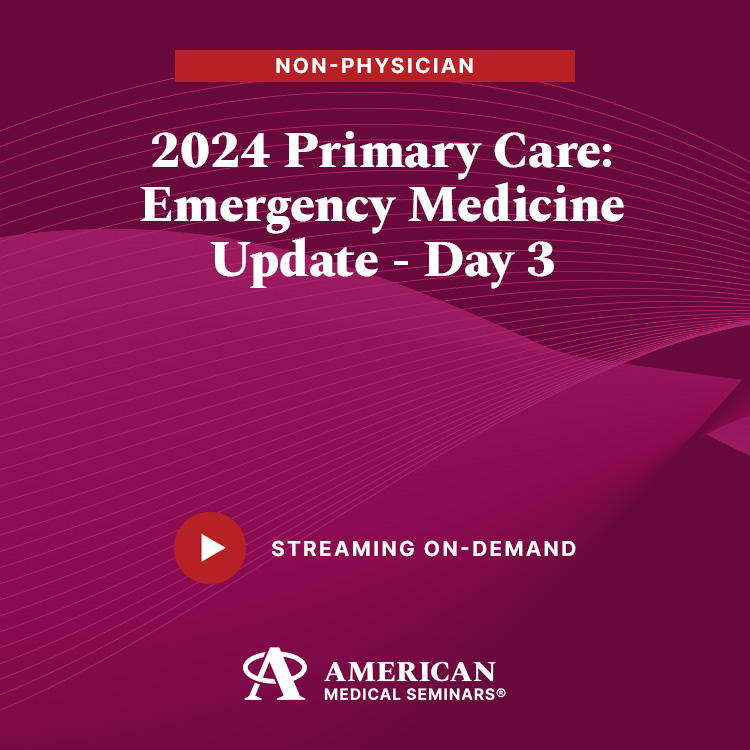Title: 2024 Primary Care: Emergency Medicine Update – Day 3 (Non-Physician)
Faculty: Gary Vilke, MD; Michael Wilson, MD, PhD, FAAEM, FACEP.; Joe Nemeth, MD; Leslie Zun, MD, MBA
Release Date: 7/1/2024 Expiration Date: 7/1/2027
Day 3
Orthopedic injuries and problems I
Attendees of this presentation should be able to:
- Determine which types of orthopedic injuries can be treated in the office versus injuries that should be transferred to the ED.
- Develop strategies to treat trauma patients in the office.
- Evaluate the types of occult injuries which might be noted on physical exam, but not seen on x-rays in order to determine an accurate diagnosis
Orthopedic injuries and problems II
Attendees of this presentation should be able to:
- Analyze the types of orthopedic injuries which can be treated in the office versus the types of injuries which should be transferred to the ED.
- Determine how to obtain a proper x-ray of the shoulder, in order to assess whether the injury is an anterior or posterior dislocation
Toxicology Emergencies
Attendees of this presentation will be able to:
- Examine the important aspects of initial stabilization, obtaining an appropriate history, physical findings and testing for common toxicologic emergencies.
- Critically review basic toxidromes.
- Develop management plans for decontamination, elimination and antidotes for poisoned patients.
Neurologic Emergencies
Attendees of this presentation should be able to:
- Evaluate clinical decision rules for identifying cervical spine injuries in the blunt trauma patient
- Formulate a workup plan for patients with both penetrating and blunt traumatic injuries in the ED setting
- Incorporate a general workup strategy for trauma patients with abdominal injuries
- Determine which patients should be referred to the ED for further traumatic workup
Pediatric emergencies
Attendees of this presentation will be able to:
- Develop strategies to evaluate and treat common pediatric complaints, including respiratory distress, vomiting and diarrhea, non-accidental trauma, fever, and other general pediatric urgent complaints
- Differentiate common and uncommon pediatric rashes and their treatments
- The receipt for any incentive-associated purchase will designate the value of the gift card separately from the cost of the learning activity.
- This incentive may have implications on your tax reporting obligations. Any reimbursed amount must be declared as personal income for tax purposes.

